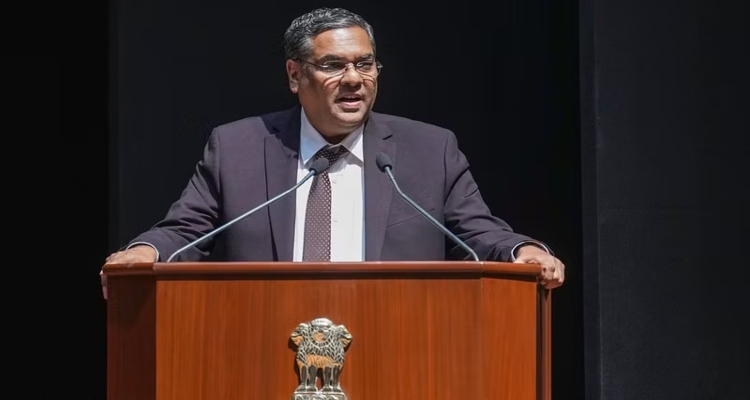
The Chief Justice of India Sanjiv Khanna on Tuesday announced that urgent listing and hearing requests must be made in writing, either via email or letter, eliminating the previous practice of oral submissions by lawyers at the start of court proceedings.
The CJI stated, “No written or oral mentioning’s anymore. Only in email or written slip/letters. Just state the reasons for urgency.”
Justice Khanna, recently sworn in as the 51st Chief Justice by President Droupadi Murmu, has emphasized a citizen-centered approach in his vision for judicial reforms. In his first public statement, he outlined the judiciary’s role as both an integral and independent branch of governance, entrusted by the Constitution to uphold fundamental rights and provide impartial justice.
“The judiciary is a constitutional guardian, protector of fundamental rights, and a service provider of justice,” he said.
Addressing key challenges, CJI Khanna underscored the need to tackle case backlogs, improve accessibility to legal services, and simplify complex legal processes to ensure fair treatment regardless of status, wealth, or power. Highlighting the judiciary’s role in delivering justice impartially, he stated, “The justice delivery framework in terms of providing equal treatment necessitates fair opportunity to succeed to all, regardless of status, wealth, or power.”
He further expressed a commitment to reducing trial durations, enhancing criminal case management, and making the judicial system more approachable and efficient.
Promoting mediation for quicker, less adversarial dispute resolution was a key focus, with the Chief Justice aiming to prioritize mediation to resolve conflicts swiftly and reduce burdens on the courts.
Additionally, he emphasized the importance of making judgments more accessible and comprehensible to the general public.
Court also highlighted that Justice Khanna’s approach involves a “self-evaluative” framework that is open to feedback, aiming to create a more user-friendly and approachable court system.
Chief Justice Khanna’s agenda reflects his dedication to improving judicial efficiency and ensuring that all citizens, regardless of their background, have equitable access to justice.




